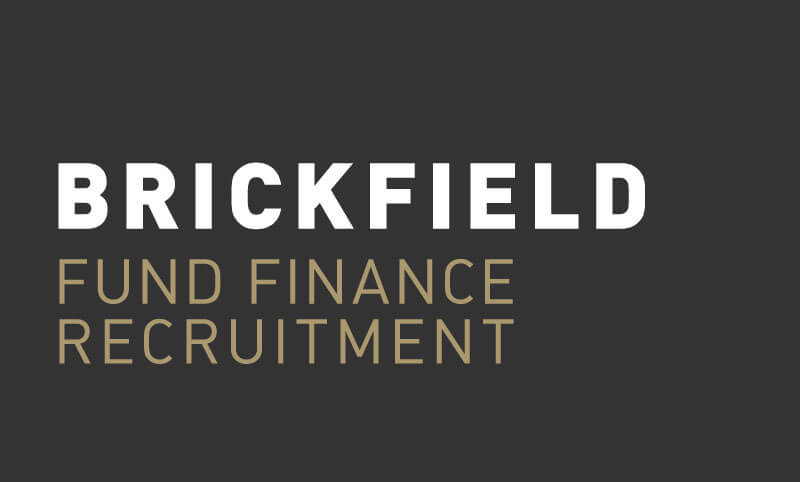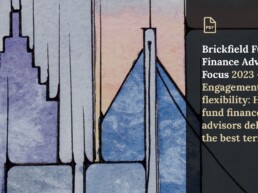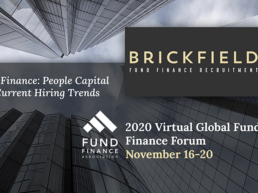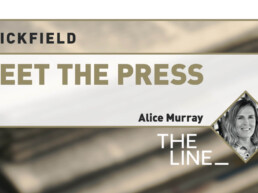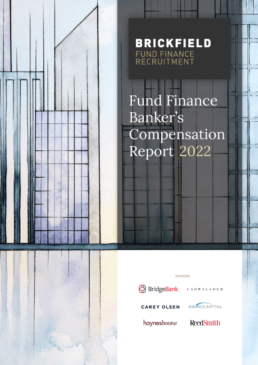
Careers in fund finance: Interview with Michael Mbayi, director at Wildgen in Luxembourg
In this second interview with fund finance industry specialists, we talk with fund finance lawyer Michael Mbayi, who is a director at Wildgen in Luxembourg in the firm’s Banking & Finance practice group. Michael has been awarded in 2021 by the Fund Finance Association for his contribution to the industry.
Brickfield Recruitment: How did you first become involved in fund finance, and what would you say is the main differentiator between that and your capital markets work?
I am from Brussels, and started my professional career at Wildgen, in Luxembourg, more than 15 years ago. Wildgen is one of the main law firms in Luxembourg with nearly a century of history in the country. After a couple of years at Wildgen, I joined the banking & finance team at Clifford Chance Luxembourg as a Senior Associate, and was then promoted to Counsel. I stayed a couple of years at Clifford Chance and joined back Wildgen in 2020.
In terms of fund finance, I have been involved in these type of transactions for more than a decade now and followed from the inside the progressive booming of the Luxembourg fund finance industry. In my previous role, I helped with the team to tailor the security structure which has been commonly used in the Luxembourg fund finance market.
Concerning my fund finance and my capital markets work, I see currently many convergences. One of the main ones being the ESG (environmental, social and governance) element. In Luxembourg, we have the Luxembourg Green Exchange, which is the leading exchange for the listing of green bonds and sustainability linked bonds. We currently see the same evolution towards ESG in the fund finance space. I currently sit in the sustainability working group of the Luxembourg’s Bankers’ Association (ABBL) and there is indeed an increased set of regulations towards ESG and an increasing volume of ESG focused products. Having a perfect mastery of all the set of ESG regulation is becoming of paramount importance in the capital market space, as well as in the fund finance space in light of this ESG evolution.
As one of the more experienced fund finance lawyers, how do you see it having developed during the last decade or so? What areas do you think are ripest for further expansion, and what among today’s innovations do you think will be the norm tomorrow?
First, we have seen a significant increase in terms of volume of transactions. Over the last decade, the volume and the sophistication of the deals have progressively increased. Sophistication in terms of the increase complexity of the regulatory environment and the form of funds available, particularly in Luxembourg where there is a wide palette of structuring options. Also, sophistication in terms of the wide variety of fund finance products which came into the market.
Concerning Luxembourg specifically, the year 2013 was a turning point with the introduction of a new form of legal entity, the société en commandite spéciale (special limited partnership – SCSp.). This is a form of partnership without legal personality, which was quite unusual for a civil law jurisdiction. This offered to the fund managers a legal form in Luxembourg similar to the Limited Partnership available in common law jurisdictions. With this innovation, we have seen a significant increase in terms of number of alternative investment funds incorporated in Luxembourg. This contributed as well to the booming of the fund finance activity in the country.
Another point of development is the requirement for investor letters. A decade ago, a fund finance transaction would not close if satisfactory investor letters, were not provided. However, with the increase of competition in the market, and the progressive recalibration of bargaining power between lenders and borrowers, it has become difficult for lenders to obtain investor letters. As a consequence, alternative mechanisms have been put in place to implement specific fund finance provisions directly into the fund documentation. As for Luxembourg, this is typically done using civil law and collateral law mechanics. Identifying these provisions in the funds documents and analysing whether they are appropriately drafted is now one of the core elements of the due diligence.
We have seen also an internationalisation of the market. A decade ago, the majority of deals were in North America, with the United Kingdom following up. We are currently seeing more and more Asian deals as well as the development of a purely Luxembourg domestic fund finance market.
ESG has become a trend since last year and the volume of these type of transactions is still increasing. This is one of the current trends that will become part of the norm in the future.
I think as well that in the future, we will see the continuing globalisation of the fund finance industry and the further development of the industry in new territories as South America and Africa.
I also believe that we will continuously see new entrants in the market, and that there is still significant space for growth. In this respect, many strategies are available. In this competitive environment, the new lenders will need to find their own niche within fund finance, specialising in light of the type of product, the profile of the sponsor, the size of the fund, the geography, or the asset class (while the majority of the lenders currently acting the in the capital call space are generally asset class agnostic).
I think that the secondary space will be an area to focus on and for which there is still significantly a space for growth.
Innovation and the relationship element have always been in the DNA of the industry.
Regarding innovation, we have seen the market evolve from mainly subscription line based, to a diversity of products offering liquidity solutions for fund managers, including hybrid, NAV and GP facilities, as well as the emergence of preferred equity solutions. Diversity is an important element in fostering innovation. Throughout history, innovation has often come from a mix of visions, cultures or practices (for instance the blend of the fund practice and finance practice that gave fund finance). Hence, it is important to continue this diversity to foster further innovation in the industry.
Regarding the relationship element, fund finance products are originally services that were provided on a relationship basis. This is because of this relationship element that the fund finance industry possesses is a sense of community. The challenge as the industry continues to grow and further globalise, will be to keep this sense of community and this relationship element by welcoming new entrants, sharing knowledge, continuing to help each other to develop, and by mentoring younger experts.
How would you compare practicing fund finance in the heart of Europe, compared to say New York or London?
Luxembourg is a great place to practice fund finance. From here, we have a holistic view of the global fund finance market. Indeed, we work on cross-border transactions with the US, with the United Kingdom, with France, more and more on Asian transactions, and of course the Luxembourg domestic market.
Furthermore, as you may know, Luxembourg is the second largest fund domicile in the world after the US, so we are at the forefront to observe global trends, not only in relation to the fund finance space but also in terms of fund raising, asset class allocations, and others.
Finally, Luxembourg is located in the center of Europe, so it is very practical to reach a number of European countries nearby very easily, which means that an associate deciding to relocate to Luxembourg would be able to enjoy life in Luxembourg while being able to easily access the rest of Europe in their free time.
What approaches do you and your team take to the training of new recruits, and to professional development in general?
Technical excellence is a core requirement for our associates. We encourage continual professional development by providing appropriate training opportunities and with day-to-day support and mentoring from more senior lawyers.
Younger associates have client exposure from day one. Indeed, beyond legal excellence, understanding the activity of our clients and helping our clients to develop and provide the best service to their own clients is one of our missions. In this respect, in addition to legal knowledge, our associates are expected to have comprehensive and holistic industry knowledge.
Thought leadership is also an important element in the development of our associates. We provide them with all the means to develop this element and to contribute to legal publications or other similar initiatives.
Work-life balance is a major dimension at Wildgen and is part of our DNA. We believe that the associates, which manage to have a good balance between work and private life, are able to provide the best service to our clients. In this respect, in 2020, we received the “Great Place to Work” award in Luxembourg.
What specific advice would you give to younger European lawyers looking to start a career in fund finance, or non-European lawyers considering a switch to the European scene?
Firstly, I would advise that you would have to possess very sound knowledge of the industry and of the market globally, as you will be involved in major cross-border transactions including the main financial centres of the world.
My second piece of advice is on technical excellence. You will need to master civil law and mechanisms of contract law (droit des obligations), financial collateral law, the regulatory environment in relation with the investment funds and the entire set of European regulations around sustainability.
Thirdly and finally, this one is for all younger lawyers in general: I do recommend developing your soft skills such as negotiation, empathy, and creativity, and the ability to innovate continuously when providing legal assistance. In order to develop this, reading is an essential part of the evolution of a young lawyer. For instance, Getting to Yes from R. Fisher, W.L. Ury and B. Patton of the Harvard Negotiation Project is a good reference source. I am happy to share further titles of books with young lawyers who are interested – they can feel free to contact me directly. I am always happy to help the up and coming generation to develop their careers.
